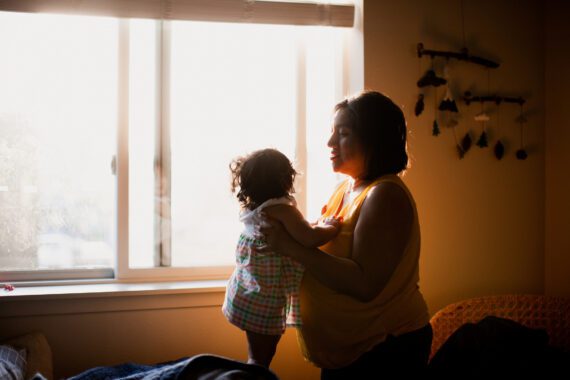A Pan-African Devotional Guide Commemorating the 2019 Quad-Centennial of the Forced Transatlantic Voyage of Enslaved African Peoples to Jamestown, Virginia (USA)
In 2019, after centuries of structural change, protests, and policy reforms most often led by Africans and people of African descent, why do these groups still experience such disproportionately high percentages of hunger and poverty today? And why is there still such a wide wealth and income gap between these groups and individuals of European and Asian descent?
An essential part of the answer lies in the history of the Quad-Centennial of the transatlantic voyage of African peoples from the country of Angola in 1619 to Jamestown, Virginia. The practice, and later policy, of enslaving African peoples before, during, and after this time are the foundation on which inequitable policies were established. Additionally, these policies have informed a practice and culture of colonization, racism, and Afrophobia around the world.
Although scholars, like Dr. Michael Guasco, from Davidson College, point out that Africans had previously been enslaved in English Atlantic colonies in other parts of the globe, Dr. Tim Hashaw, author of “Birth of Black America,” notes that “absolutely vital to the formation of English-speaking America was in 1619 in Jamestown, Virginia when some sixty Africans were stolen from a Spanish slave ship [by the English] and were brought to the young struggling colony of Jamestown…”
This is where the origins of the process for the codification of legalized enslavement of Africans and African descended peoples in the United States began.
Bread for the World recognizes that the 2019 Quad-Centennial is a global historic moment to acknowledge how the practice of slavery in the United States led to the development of public policies sanctioning the enslavement of Africans and African-descended people.
Bread for the World also recognizes that this enslavement was followed by deliberate public policies and practices that have systematically disempowered and disenfranchised people of African descent for 400 years in the United States and around the world.
In light of this historic moment, Bread for the World is honored to produce and dedicate the new 2019 Quad-Centennial monthly devotional, “Lament and Hope: A Pan-African Devotional Guide Commemorating the 2019 Quad-Centennial of the Forced Transatlantic Voyage of Enslaved African Peoples to Jamestown, Virginia (USA).”
The devotional celebrates the hope, faith, and resistance of African and African-descended people, while also lamenting the evil and horror of the history of enslavement, racism, and inequitable policies, many of which are still present today. In addition, this Christian devotional acknowledges and seeks to inspire readers to address the resulting consequences of hunger and poverty through advocacy.
Devotional Contents
January
Lament and Hope in Angola—A History of Migration, Immigration, and Enslavement
From 1501 to 1867, more than 12.5 million Africans were captured, sold, and transported to the Americas. While Portugal and Spain were the first European powers engaged in this trade, eventually most of the European powers would join.
February
Lament and Hope—The Survival and Spiritual Resistance of African Peoples to Enslavement and Forced Immigration
In the summer of 1619, after the war of resistance in Angola, 350 enslaved Angolans were robbed. They were put on a ship called the Juan Bautista, bound for the coast of Mexico. Their spiritual resilience kept some of them alive despite horrific torture while others perished at sea.
March
Lament and Hope—President Andrew Johnson’s Land Policies
Rescinding the 40-acre promise to those who were recently enslaved and fought for their country prevented them from becoming fully independent from their former owners. They were legally free, but they were prevented from becoming financially free.
April
Lament and Hope—Land Seizures (1865-Present Day) and Common Ground in the US and South Africa
As the post-slavery decades passed, the practice of sharecropping and tenant farming became another form of slavery. But some farmers succeeded in breaking out of the sharecropping cycle and bought land.
May
Lament and Hope—Housing Policies for Africans in Diaspora
Homeownership is the primary way American families build wealth. African Americans have been denied equitable access to mortgage loans, and therefore homeownership, for roughly the past four generations.
June
Lament and Hope—The Policy of the Social Security Act of 1935
The Social Security Act, enacted in 1935, was intended to provide a safety net for workers, particularly those suffering during the Great Depression. During this time African Americans were barely able to get by whether they were seniors, working-age adults, or children.
July
Lament and Hope—The Fair Labor Standards Act of 1938 (FLSA)
A significant piece of New Deal legislation, FLSA established a national minimum wage and a maximum work week and prohibited most employment of children under 16. Although the bill was originally intended to help strengthen the economy and put an end to the Great Depression, various groups of workers were excluded, including domestic workers, who were disproportionately African American women.
August
Lament and Hope—The Policy of the G.I. Bill
The G.I. Bill provided military veterans returning from World War II with many benefits, including low-cost mortgages, high school or vocational education, college tuition and living expenses, unemployment insurance, and low-interest loans to start businesses. African American veterans were denied many of its benefits because the legislation failed to take into account existing discriminatory laws and policies.
September
Lament and Hope—The Impact of the ‘Separate but Equal’ Policy
Both the concept and the phrase “separate but equal” came from an 1896 court decision, Plessy v. Ferguson, which held that it was constitutional for railway companies to provide “separate but equal” services for their customers. It validated the “Jim Crow” laws that southern states had begun to enact starting in the late 1870s.
October
Lament and Hope—Policies Related to Subprime Loans (1970s to Present).
Subprime loans are loans that carry higher interest rates than prime loans, which are more desirable since their interest rates are lower. Often, subprime loans are the only loans for which people considered at higher risk of defaulting can qualify. Subprime loans have devastated African-American communities and eroded wealth that had been accumulating.
November
Lament and Hope—The War on Drugs and Still We Rise!
The so-called “War on Drugs,” was first launched in 1971 by the Nixon administration. The people imprisoned, particularly for drug offenses, came disproportionately from the African American community and other communities of color.
December
Lament and Hope—From Lamentation to Liberation!
The dark shadow of slavery and oppression has haunted Africa and Africans in the diaspora for hundreds of years. White supremacy laid the foundation and continues to perpetuate deep spiritual, political, and economic disparities in Africa and among her descendants throughout the world. We must heed the words of the prophet Isaiah and flip this oppressive script. The people who have walked in darkness, like our ancestors, will walk in the light of love, light, and liberation.




